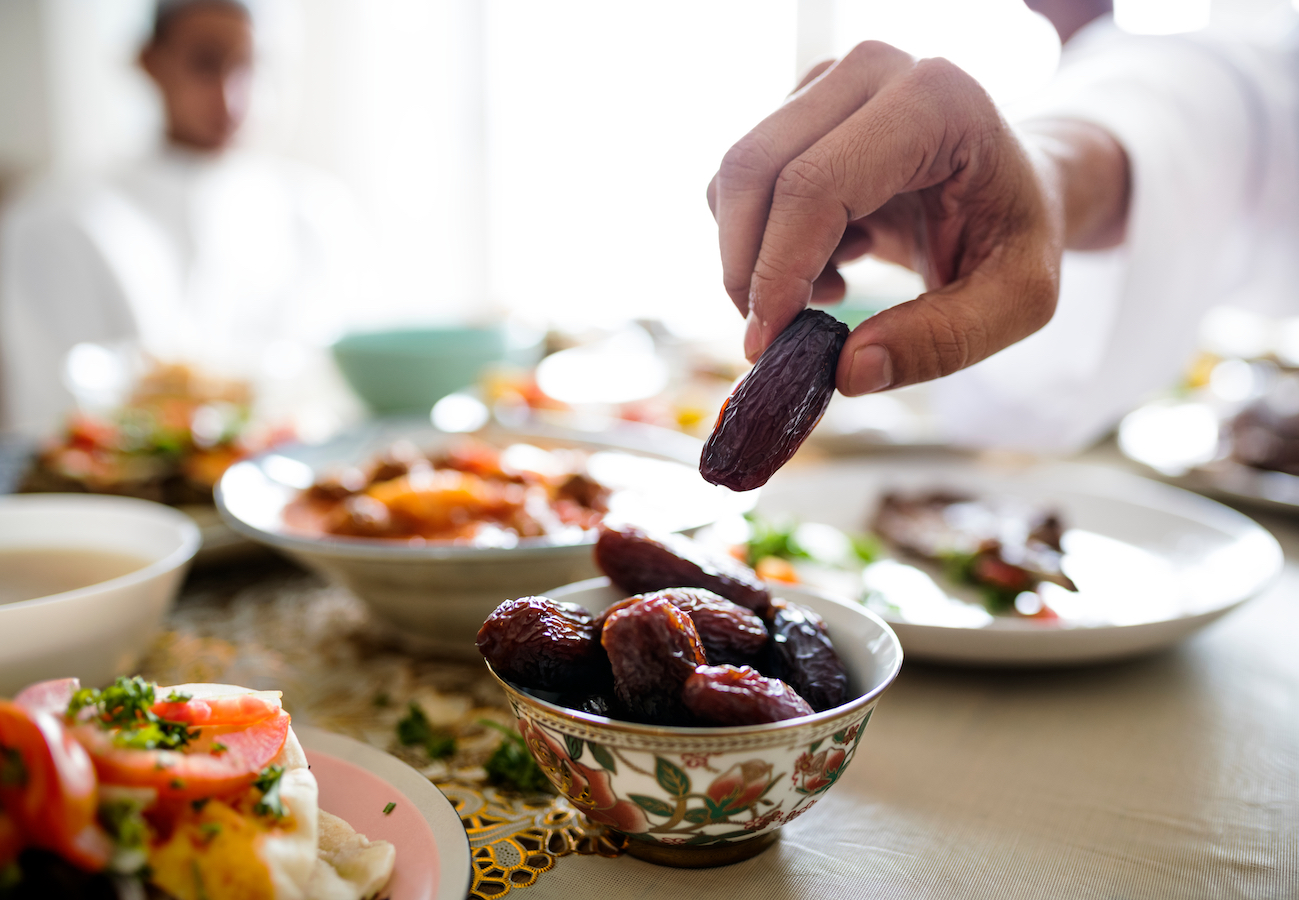DUBAI: The holy month is upon us, and if you are fasting then iftar has become the most important part of your day. But do not dive straight into high-fat, high-sugar foods — make the meal really count.
Start with a drink

Water is key, so start with a glass or two. (Shutterstock)
Hydration should be your No. 1 priority as soon as you are allowed to eat and drink again. Water is key, so start with a glass or two. Think about adding fruit or vegetables for a smoothie, or a scoop of protein powder, to add flavor and get some much-needed quick and healthy calories.
Choose a variety of fruits

Change the fruit every few days to reap the benefits of some diverse nutrients. (Shutterstock)
Stay away from high-sugar treats. Opt for fruits for a much-needed boost of energy and hydration. Dates are the traditional option to break one’s fast because of their high natural sugar and nutrient content, but feel free to swap for mangoes, lychees, cherries, pears or grapes for the same affect. Change the fruit every few days to reap the benefits of some diverse nutrients.
Soup is your friend

Choose from vegetable soups, chicken, beef and bone broths, or miso for a nutrient-dense starter. (Shutterstock)
Start with something simple to avoid dealing with the indigestion of a heavy meal on an empty stomach. As well as being easy on the digestive system, they are another great way to get hydrated. Choose from vegetable soups, chicken, beef and bone broths, or miso for a nutrient-dense starter.
Balance is key

Choose protein-rich foods such as tofu, beans or lean meat to maintain muscle mass. (Shutterstock)
It is important to remember that you are not on a free pass to fill up non-stop on food every night as you will definitely gain weight. Stay away from high-fat fast foods such as cheeseburgers and chips. Choose protein-rich foods such as tofu, beans or lean meat to maintain muscle mass. Fat intake should come from healthy options such as nuts, fish and avocado.
Have some carbs

Add plenty of vegetables to your meal. (Shutterstock)
During the fasting period, the body will use glycogen (stored carbohydrates) for energy and brain activity, so it is important to replace depleted stores. Add plenty of vegetables to your meal as well as a healthy side of slow-release carbs such as brown rice, quinoa, wholegrain pasta or sweet potatoes.







0 التعليقات:
إرسال تعليق